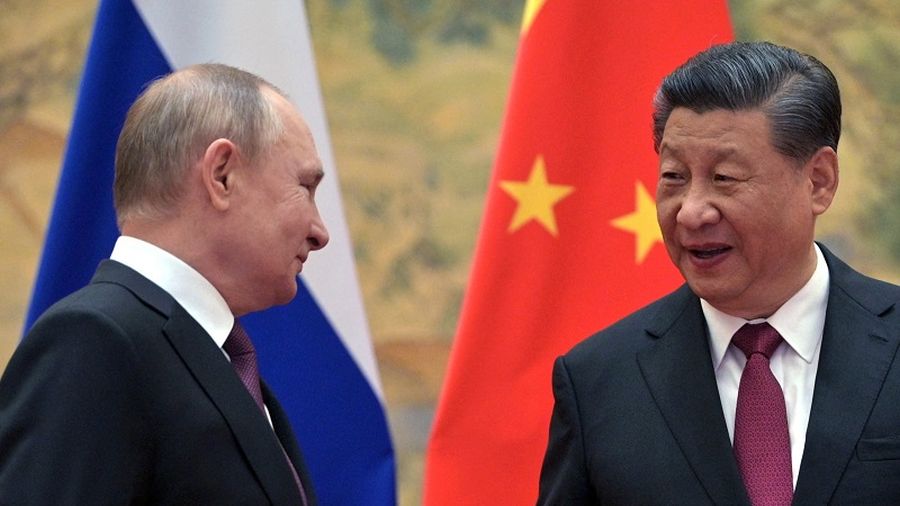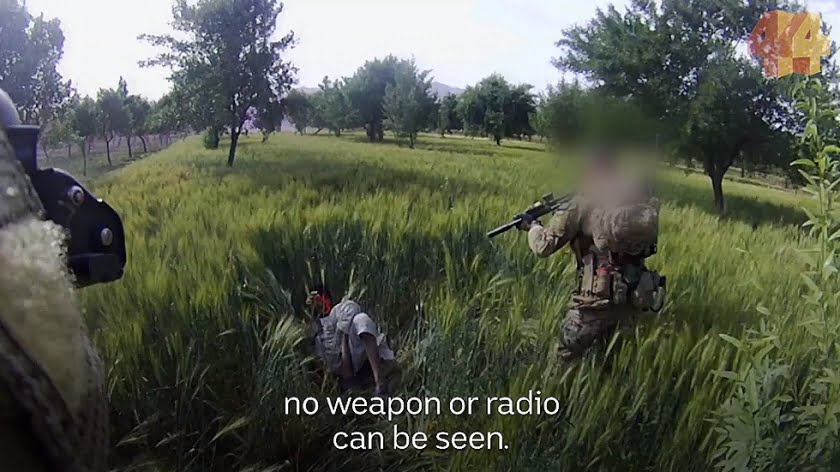The New Era of International Relations Is Defined by the Russian-Chinese Entente
They’re truly changing the world in pursuit of their shared vision of making it more equitable, just, and multipolar, but neither is going to go to war for the other….Precisely because they’re ‘more than allies’, they can responsibly agree to disagree on certain key issues like Kashmir and the South China Sea while still continuing their globally game-changing cooperation.
The Russian-Chinese Strategic Partnership serves as the engine of the emerging Multipolar World Order. It was unprecedentedly strengthened after these Great Powers’ grand strategies were compelled to converge in response to the US’ attempted simultaneous “containment” of both after 2014. The declining unipolar hegemon coordinated provocations in Eastern Europe via Ukraine and Southeast Asia through the South China Sea but “counterproductively” brought those two closer than ever before as a result. All of its attempts to divide and rule them through information warfare have also failed.
Nowhere is their grand strategic convergence more apparent than in the joint statement that they released during President Putin’s visit to the People’s Republic to attend the Opening Ceremony of the Beijing Olympic Games and meet with his Chinese counterpart. Titled “Joint Statement of the Russian Federation and the People’s Republic of China on the International Relations Entering a New Era and the Global Sustainable Development”, this document confirms that those two are coordinating almost every facet of their respective policies across the world.
They’re united in their shared vision of the emerging Multipolar World Order and are convinced that the sanctity of international law as enshrined in the UN Charter must be respected no matter what. Russia and China are strongly against attempts to weaponize the concept of “democracy” as a pretext for meddling in the internal affairs of other countries. They regard the people as granting legitimacy to their government, yet they also acknowledge that each country has the right to practice their own unique form of democracy based on their circumstances, history, socio-political situation, and traditions.
On the economic front, Russia and China agree that the UN’s Sustainable Development Goals must be achieved, though this has become challenging as a result of the international community’s uncoordinated efforts to contain COVID-19 (“World War C”). Nevertheless, the synchronization between Beijing’s Belt & Road Initiative (BRI) and Moscow’s Greater Eurasian Partnership (GEP) will provide a much-needed impetus for bringing this about, all with the intent of jointly forging a community of common destiny for mankind.
The greatest obstacle to their ambitious vision is some states (understood to be a reference to the US) unilaterally ensuring what they describe as their own “security” at others’ expense, including through Color Revolutions, which Russia and China jointly oppose. The creation of military alliances aimed against others, the abrogation of international arms control pacts, and the nuclear proliferation threat posed by AUKUS are all of serious concern to these Great Powers. Only full compliance with the principle of indivisible security as enshrined in international law will suffice for stabilizing the world.
No so-called “forbidden” areas exist in terms of the spheres where Russia and China will now cooperate, nor are there any limits thereof. They’ll pursue true multilateralism in all international fora and will work to strengthen those in which they presently participate such as APEC, EAS, BRICS, RIC, the SCO, and the G20, et al. People-to-people ties will also continue to be prioritized, as will their efforts to maintain ASEAN’s central role in the Asia-Pacific. Russia and China are truly uniting to ensure that the ongoing global systemic transition towards multipolar remains stable and sustainable.
Having reached that conclusion throughout the course of reviewing their very detailed joint statement, it also deserves mentioning that Russia and China still aren’t “allies” in the traditional sense that this term is widely understood to signify. Although Chinese President Xi Jinping described their relations as “more than allied”, this doesn’t in any sense imply that either country is willing to have their troops fight, sacrifice, and potentially even die in defense of the other’s legitimate security interests that are threatened by unprovoked American aggression.
Rather, what’s meant is that neither is dependent on the other or “owes” them anything since their relations are truly between equals and not in any sort of “hierarchy” whereby one can order the other to sacrifice on their behalf like in the alliances of times past. Their joint statement makes it clear that these two are coordinating on issues of global strategic significance that surpass the cooperation of any pair or group of states in history. They’re truly changing the world in pursuit of their shared vision of making it more equitable, just, and multipolar, but once again, neither is going to fight for the other.
Nor, in that case, should they even be expected to as explained by the author in his answer to the third question that he was asked in a recent interview that can be read in full here. He also elaborated on the interplay of China and India’s importance for Russian grand strategy here, which is crucial for observers to keep in mind since Moscow and Beijing still don’t see eye-to-eye on exactly all issues like Kashmir or the South China Sea as was explained in the last part of this article about why China isn’t fully taking Russia’s side in its dispute with Ukraine despite supporting it against NATO’s warmongering.
Nevertheless, there’s no doubt that the Russian-Chinese Strategic Partnership is truly the driving force in accelerating International Relations’ ongoing global systemic transition towards multipolarity following the brief and highly destabilizing period of US-led unipolar hegemony. Their ties are rock-solid and won’t be weakened even by their objectively existing differences over hot international issues like those that were touched upon in the abovementioned paragraph. Precisely because they’re “more than allies”, they can responsibly agree to disagree while still continuing their globally game-changing cooperation.








One Comment